- Home
- Rachel Caine
Heat Stroke ww-2 Page 8
Heat Stroke ww-2 Read online
Page 8
She pointed. I blinked.
“You’re kidding,” I said. Straight ahead, at the end of her pointing finger like she’d conjured it up out of the ground, stood the huge stone and steel tower of the Empire State Building. Well, the blurry outlines of it. We were a long walk away. “Do these look in any way like L.L. Bean hiking boots to you?”
Rahel flashed me a blinding, sharp-toothed smile. “Then put on comfortable shoes.”
I sighed and fell into step with her. Some days, it just doesn’t pay to have fashion sense.
New York is interesting on every level, but especially on the aetheric. In the physical world it’s layered like a wedding cake, history on history; dig far enough down in those sandhog runnels and you’d find graffiti left by the original Dutch settlers, and by the long-ago-evicted Indians before them. In Oversight, New York isn’t about bricks, cement, and streetlights— it’s all about perceptions and energy. One enormous storage battery, stuffed with good, evil, rage, peace, fury, love, hate, and ambition. It shoots up into the aetheric for miles, a fantasyland of constantly changing illusions.
It was brighter today than it had been the last time I’d seen it, a kind of fierce pride spiking from every structure, even the tenements tainted by anger and despair.
The Twin Towers still existed, on the aetheric plane. When we came into a space where the buildings would have once been visible, I stood and gaped, feeling cold prickles all over my not-quite-human skin. The ghosts of the two buildings rose like glittering ice into the gray sky.
“How?” I stuttered, but I already knew. It was there because it lived in the hearts and minds of millions, maybe billions of people, and until that faded, it would remain in the aetheric. “Because we remember.”
Rahel nodded soberly and said, “Humans have power. Creating, destroying, remembering… all acts of great power. Greater than any of them know.”
There was something humbling about it. I could sense the incredible force of power even from where I stood. “Can we go there? Take a closer look?”
“Not you,” she said. “Too young. Too much power. For you, it would be like standing in the heart of a sun.”
She shooed me on. We moved at the fast pace of foot traffic. This time of day, rush hour was in full swing—people striding to work, women in business suits and Air Jordans, bike messengers weaving in and out of the honking, stinking, creaking flow of traffic next to the sidewalk. Every other car was yellow, with rates on the side. Everybody seemed to have a big purse, a backpack, or a briefcase. Half of them were on cell phones.
“So I said to him…”
“… bitch, back up off of that before I slap you stupider than you look…”
“… I mean, how dumb can you be? Obviously, it’s a chicken!”
I wondered if any of them realized how their personal lives sounded to the rest of the world. Or cared. I wondered if anybody had been listening to us. If they had, nobody cared. Just another day in New York, apparently.
We weren’t moving as invisible, but that didn’t stop people from barreling ahead into our space at frightening rates. Rahel dodged to avoid a particularly focused blond woman in an Ann Taylor jacket and a Kmart skirt. She had a cell phone headset over her bleached hair, smart-girl glasses perched at the end of her nose, and wasn’t taking crap from anybody. I recognized the type. Black belt in shopping, no kids, no dogs, no husband, money market account diversified into international growth and mutual funds. Probably lived in a pricey but tiny closet on the Upper West Side and worked at Citibank or Chase.
She noticed us, and even for New York we were clearly not the usual sight. For just a second her gray eyes touched Rahel and locked on like missiles, and then she swerved and blasted past us, back to talking tensely about the latest slide of the Dow Jones. Rahel smiled. “Sometime tonight, she’ll have a dream. A dream about flying, or falling, or monsters. And she won’t know why.”
“You did that?”
“No,” she said. “They do it to themselves. We are not safe to look on for long, you know. Not for them.” She glanced over at me, and frowned. “Or perhaps she’ll just have a nightmare about your hair.”
“What about my—” I caught sight of it, reached up and dragged a tight curl down to focus on it. “Dammit. I’m Shirley Temple again.”
Rahel pulled me to a stop and over to the side, under the shelter of a red-and-white striped awning in front of a dusty shoe store. The pavement was spotted with pigeon poo and ages of tobacco stains. She stood in front of me, blocking me from bystanders, and brushed her long-nailed fingers gently over my head. I felt the curls relaxing. “There,” she said. “Remember that feeling. Just reach for it when you need it.” She studied me more closely. “Your eyes.”
I neutralized them to the serene dove gray that I’d managed earlier. She nodded.
We waded back into foot traffic again, and had a nice twenty-minute walk. I don’t recommend that in cool shoes.
At the end of what I was coming to think of as the Manhattan Death March, the big foursquare bulk of the Empire State Building loomed over us, cool shadows rich and deep with history. “Aren’t we taking the tourist thing a little far?” I asked, staring up. The building was awe-inspiring in its achievement; I wanted to take a look in Oversight, but I knew that if I did I’d never get my hair and eyes straight again. Better to stick to the simple things, for now.
“Inside,” Rahel said, and pushed me to the big revolving glass doors. I pushed, shuffled, and emerged into the big genteel lobby, under the steely gaze of a phalanx of security guys in snappy blue sport coats. The place smelled of fresh paint and old wood, and there was so much to see, even without resorting to Oversight or rising into the aetheric. Gorgeous deco touches, a sense of weight and history to the place that made me want to sit down and soak it in. So many people had come through here, over the years, bringing with them their fears, their loves, their hopes and dreams.
I could feel the echoes of them trapped in every tile on the floor, in every steel beam of the structure. It felt… deliriously weighty.
Visitors were queuing up behind a maroon velvet rope next to a sign that said tours. There was a metal detector involved, and I was sure the German shepherd sitting pretty in the corner wasn’t there for his health.
“Walk through the detector,” Rahel said. “Don’t touch anything.”
“Um, people in line—”
“Go around them.”
I did. Nobody glanced my way. Now that I concentrated, I could feel something hanging around me— a kind of gray veil, a don’t-see-me that wasn’t quite invisibility. Rahel’s doing. I was getting better at figuring that out, anyway; I couldn’t even sense it before. I waited until there was a pause in people going through the detector and darted in, zipped through, and felt the weirdest sensation, a kind of burn deep inside. Whoa. Weird.
The dog was looking at me. At first I thought he was just staring in my direction, but he watched me as I walked across the lobby, and as Rahel joined me I nudged her and jerked my chin in the direction of our furry friend.
She nodded. “Animals see us as we are,” she said. “Dogs don’t feel threatened, but beware of cats. They can be unpleasant.”
“O-kay.”
She pressed the button. We waited. Eventually a likely candidate arrived, and we crowded in fast, cutting off the flow of tourists with a fast-closing door. Rahel pressed a button—which floor, I didn’t see— and then turned and stared into the empty corner of the metal box.
“Um…” I was at a loss for words, for once. “Is there something…”
“Quiet,” Rahel snapped. “I’m thinking.”
I was quiet. I listened to the creak of the elevator, the hiss of cables as they hauled us up toward heaven. Distant voices dopplered past one floor at a time, snippets of conversation that wove in and out too fast to catch.
I became aware of something else. A low-level hum somewhere in the far corner of the elevator, a sound where there should be no so
und. No presence.
“What’s that?” I asked, but before I got more than the first word out, Rahel was moving. Spinning away from me, slamming into the empty space of the corner, grappling with something that was shadow and darkness and then…
And then I saw it. Definitely not human. Black, fluid, like an spilled shadow, a stain on the world. Rahel was trying to hold it, but it slid away from her like oil, oozing past her, flowing toward me.
“Go up!” she shouted to me, and her talons changed colors from neon orange-yellow-blue to diamond, and she slashed at the thing between us, tearing deeply. I heard it scream in a high, metallic, screeching voice. “Idiot! Go up!”
She meant up to the aetheric. I let go of my human form and went instantly into fog, vapor, mist… into nothing that could be gotten hold of. But that meant I went up into the next plane of existence, and there, the battle was really going on.
Rahel—fog and fire in the aetheric, a bright glowing ghost—was inside of a black, crackling cage of fire. As I watched, she howled and slashed at it, but the wounds she made faded within seconds.
It was… it was eating her. Consuming her, bleeding off power, feeding it through that cage of fire and into something else, something that I couldn’t even see for the darkness. God. The thing was looking at me, not at her. I could feel its hunger vibrating the world between us.
I didn’t think. I just reached out and grabbed hold of that black cage of fire. I guess I intended to rip a hole in it big enough for Rahel to escape, but that wasn’t what happened. The second I touched it, it bonded to me, made me a circuit in that huge flow of current. I was locked in place.
“Joanne!” Rahel shouted, and I felt her reach through the bars that separated us and touch me. “Draw on David! Fight!”
I didn’t have a choice. The sensation of being sucked dry was so overwhelmingly revolting that I would have used anything, anybody to pull away. I grabbed hold of that silvery cord that connected me to David and felt power cascade into me, heady, brilliant, hot, pure. It was like introducing a circuit breaker into the flow. The cage around Rahel fell apart into writhing black spikes of energy, and I reached to pull her free. When I touched her, I left silvery contrails of power behind. She grabbed hold and dragged me down, through aetheric, rocketing back into the real world. We slammed back into the elevator cage with enough force to rock it on its cables, and Rahel didn’t waste any time with niceties; she took over for me, creating flesh and form in less than a flicker of a second, and when I opened my eyes her neon yellow ones were staring into mine from less than a foot away.
“What the hell was—”
“Hold on!” she shouted, interrupting me, and I felt the power surge around us. Not from her, not from me, from that thing.
I didn’t think, I reacted. I reached out and slapped it down, hard. The resulting concussion of force erupted in sparks and blue-white flashes as energy turned to electricity, seeking the ground.
Ah, this was something I could handle. I reached out on the subatomic level and quickly dispersed the field, bleeding it off into a million tiny jolts through the steel frame of the building. All over the place, people would be picking up static charges from carpet, shocking themselves on doorknobs, feeling prickles on the backs of their necks.
“No!” Rahel said, and grabbed me by the shoulders. “We can’t fight here! Too close!”
Not that we had any choice. The thing was still coming at us, hard and fast, and I ignored her to reach out through the aetheric and read what was going on.
It had control of the air. I couldn’t tell what it meant to do, but something bad was a good bet. Air’s heavy—it weighs several pounds per square inch. Increasing density can crush a human—or even a humanoid—body like an empty beer can.
I blocked, drawing heavy oxygen out of the elevator cage and slamming it together in a tightly packed ball between my spread hands. Rahel backed away, looking down at the swirling gray-blue mass I was holding. Her eyes went wide.
I set it on fire with a spark from the electricity still crackling around in the air, and wrapped the whole thing in a shell of carbon dioxide, and lifted that bowling-ball-sized inferno in one hand and held it there. Hell in a bottle.
“Bring it on!” I yelled to the empty air. Voices didn’t carry in the altered atmosphere, but it didn’t matter, I knew it was getting the point. “Get your ass out here, you coward! Show yourself!”
The elevator shuddered to a halt.
Something black manifested itself in the corner as a shadow, then a stain, then an oil-slick presence.
It wasn’t a Djinn. I didn’t know what it was, but evidently Rahel did. She lifted her left hand and pointed it at the thing, and her fingers sprouted claws again—long, wickedly pointed things that gleamed harsh crystal in the overhead lights.
“Ifrit,” she hissed. She looked savage. “Leave this place.”
There were eyes in the shadows; I could feel them even if I couldn’t see them. Dark eyes. And a darker amusement. The ball of fire I’d made was starting to get hot, even through the layering I’d put around it. I tossed it from one hand to the other, looking casual and—I hoped—deadly.
The Ifrit purred, “Peace to you, my sisters.”
“War, my sister,” Rahel answered softly. “Who lets you hunt here?”
“Sweetmeat, I hunt where I choose,” the thing said. It had a voice like darkest velvet, and even though the air was too thin to hold a smell I could taste it, like rotting meat in the back of my throat.
“Not here. Not now.”
I don’t know how it did it, but it smiled. Grinned, actually. Maybe it was just that my eyes were getting accustomed to the lack of features in its face, and added some imaginary ones, but I thought I saw a flash of teeth. “This creature cannot survive,” it said, and pointed toward me. “Think you I will allow its energy to be wasted?”
The Ifrit was talking about me. “Who you calling a creature?” I shot back.
“Hush,” Rahel said absently. She was staring at the Ifrit with a frown now, no longer afraid. “Get rid of that fireball before you hurt someone.”
Oh. The fireball. I killed it by the simple expedient of cracking the carbon dioxide shell and instantly supercooling the molecules as they tried to hurtle out and fry us alive. By the time the snapping sound echoed through the elevator car, all that was left was a faint smell of ozone and a wisp of smoke that I left, just for effect.
“Now,” Rahel said, and slowly lowered her hand. “Who sent you, my poor sister?” I wondered what had made the attitude change. My poor sister? The thing didn’t look either poor or related. Or even vaguely female.
Right on cue, the elevator dinged and the cage shuddered to a stop. The doors slowly creaked open on a spacious but faded hallway, an expanse of not very new business-class carpet… and Santa Claus.
Really. Big, burly, tall, with thick bushy white-blond hair, twinkling Caribbean blue eyes… He was wearing a blue velour jogging suit, Nike cross-trainers, and little narrow Claus-friendly glasses perched on the end of his nose.
“Actually, she’s mine. Sorry for the inconvenience,” he said. He stuck his hand out sideways for me to shake. I stared at it, at him, at Rahel, at the Ifrit who was now lounging against the elevator wall as if it didn’t have a care in the world. The air still smelled of fear and ozone.
“Joanne Baldwin, I presume,” he said, with that same devil-in-the-details smile.
“Who the hell are you?” I blurted. Rahel sighed, shook her hands and inspected her restored nail polish critically.
“His name is Patrick,” she said. “And I regret to say that he’s your new instructor.”
The Ifrit vanished while I wasn’t looking, but I had the strong impression that it hadn’t gone far. Patrick and Rahel exchanged long looks. On Patrick’s side it was cute and twinkly and frankly lecherous; on Rahel’s it was pained, long-suffering, and repulsed.
“Don’t,” she said when Patrick opened his mouth. He looked hurt.
“I have no need for intercourse with you, social or otherwise. Now. You’re expecting her, I presume.”
Patrick nodded and slapped a hand out to stop the elevator doors from closing between us. He gave us a grand, sweeping gesture that included a comic-opera bow. Rahel ignored him and pushed past. I followed, and I had the strong impression that while he was down there bowing and scraping, he was checking out my ass.
Patrick let go of the doors and offered me his arm, which I didn’t take. Rahel watched the pantomime impatiently. “Let’s get on with this,” she snapped. “I do not appreciate your little joke.”
“What, my Ifrit? Please. As if you could possibly have been hurt by her, Rahel. Nice theater, though, very nice, I very much liked your screaming. I presume Jonathan told you there might be some excitement along the way?”
“He neglected to mention it. I assume you were testing our new friend?”
“Of course.” He offered Rahel his elbow this time; she looked at it like something fished out of a sewer line and kept walking. Patrick darted ahead down the hallway, presumably leading us somewhere as he talked over his shoulder. “No offense, my dear, but I do like to know that she won’t curl up and die before I even work up a good sweat. I thought with you here, she might expect you to save her, but that was quite a nice surprise. Got backbone, this one. No brains, but backbone.”
“Hey!” I snapped, and walked faster to catch up. They had pulled ahead of me by at least ten feet, taking long strides that my high heels, no matter how kicky, weren’t appropriate for matching. “So that was some kind of test?”
Patrick threw Rahel a bushy-eyebrows-raised look. “Oh, she’s quick, isn’t she?”
“Very.” For the first time, they were on the same wavelength.
We came to a halt in front of a narrow office door, unmarked except for a number and a weathered sign that read please knock. Patrick twisted the knob, swung the door wide, and stood aside to let me precede him. I took a tentative step in and found a not-very-comfortable waiting room, the standard for HMO doctors and low-cost dentists—industrial furniture, magazines that looked vintage, a crappy, out-of-register TV playing silently in one corner. No receptionist visible, nothing but another door, this one unmarked.

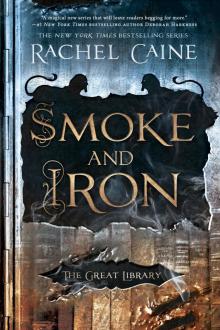 Smoke and Iron
Smoke and Iron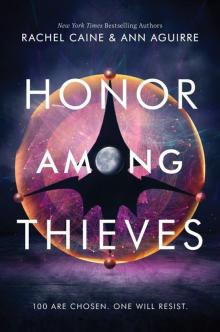 Honor Among Thieves
Honor Among Thieves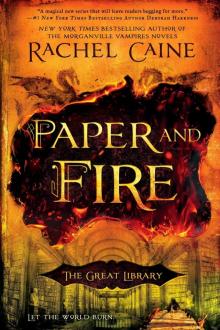 Paper and Fire
Paper and Fire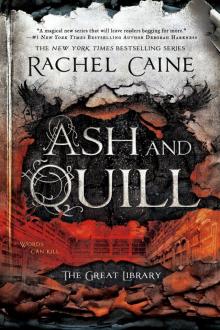 Ash and Quill
Ash and Quill Wolfhunter River (Stillhouse Lake Book 3)
Wolfhunter River (Stillhouse Lake Book 3)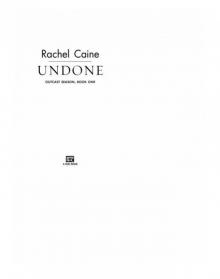 Undone
Undone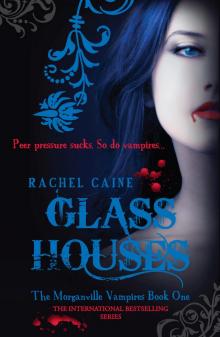 Glass Houses
Glass Houses Prince of Shadows
Prince of Shadows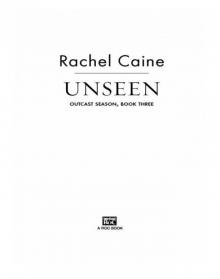 Unseen
Unseen Midnight at Mart's
Midnight at Mart's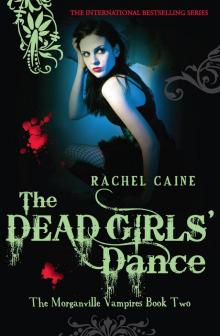 The Dead Girls Dance
The Dead Girls Dance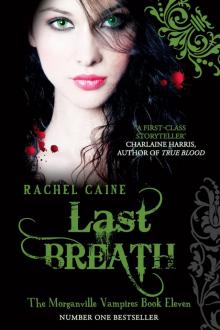 Last Breath
Last Breath Stillhouse Lake
Stillhouse Lake Daylighters
Daylighters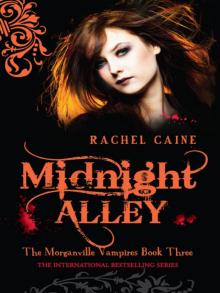 Midnight Alley
Midnight Alley Black Dawn
Black Dawn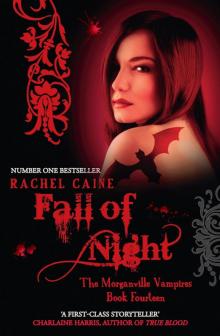 Fall of Night
Fall of Night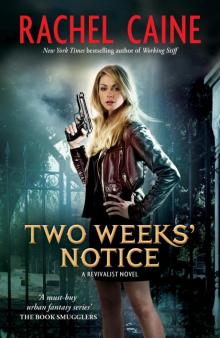 Two Weeks Notice
Two Weeks Notice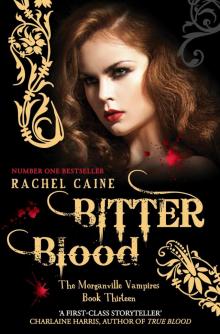 Bitter Blood
Bitter Blood Carpe Corpus
Carpe Corpus Kiss of Death
Kiss of Death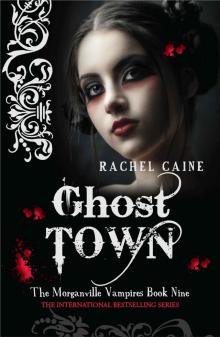 Ghost Town
Ghost Town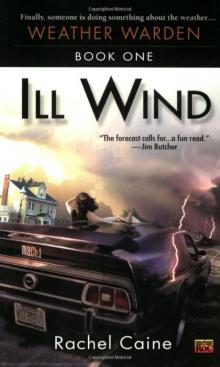 Ill Wind
Ill Wind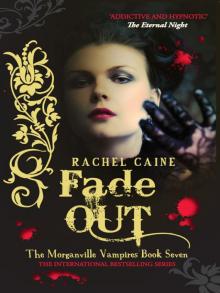 Fade Out
Fade Out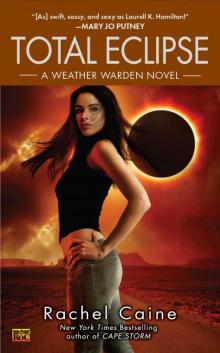 Total Eclipse
Total Eclipse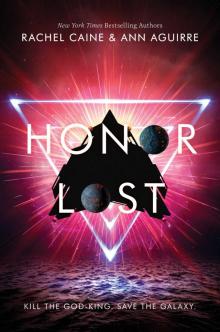 Honor Lost
Honor Lost Thin Air
Thin Air Black Corner
Black Corner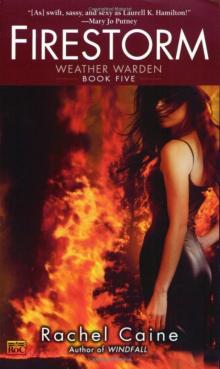 Firestorm
Firestorm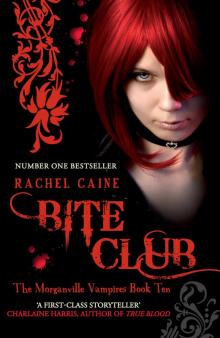 Bite Club
Bite Club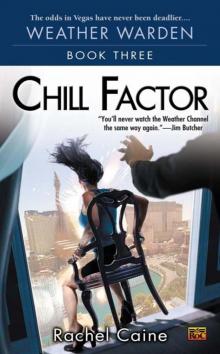 Chill Factor
Chill Factor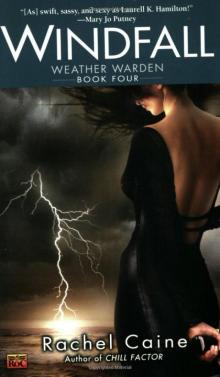 Windfall
Windfall Oasis
Oasis Devils Bargain
Devils Bargain Terminated
Terminated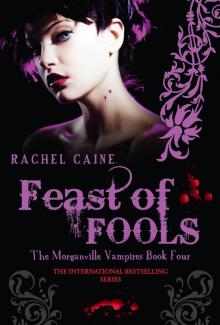 Feast of Fools
Feast of Fools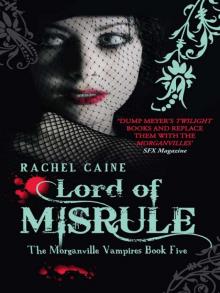 Lord of Misrule
Lord of Misrule Devils Due
Devils Due Ladies' Night
Ladies' Night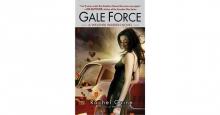 Gale Force
Gale Force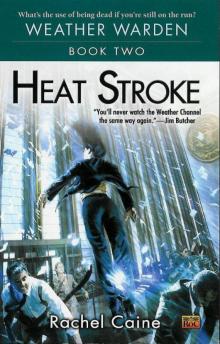 Heat Stroke
Heat Stroke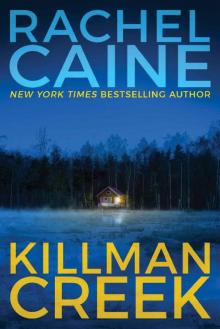 Killman Creek
Killman Creek Sword and Pen
Sword and Pen Cape Storm
Cape Storm Unbroken
Unbroken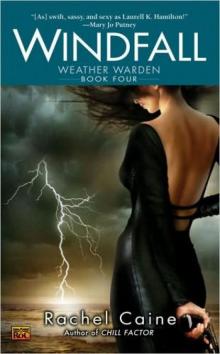 Windfall tww-4
Windfall tww-4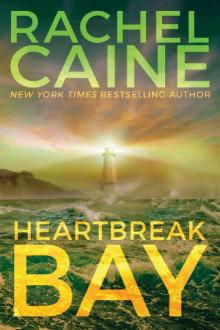 Heartbreak Bay (Stillhouse Lake)
Heartbreak Bay (Stillhouse Lake) Daylighters: The Morganville Vampires
Daylighters: The Morganville Vampires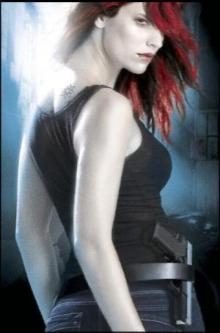 Duty
Duty Honor Bound
Honor Bound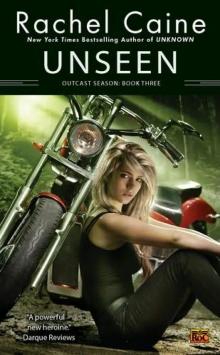 Unseen os-3
Unseen os-3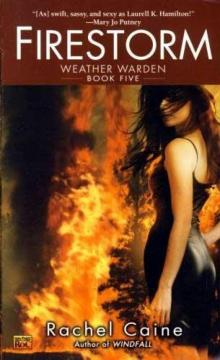 Firestorm tww-5
Firestorm tww-5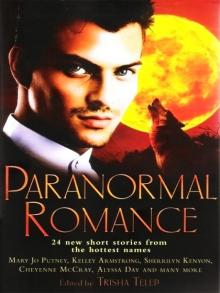 Blue Crush
Blue Crush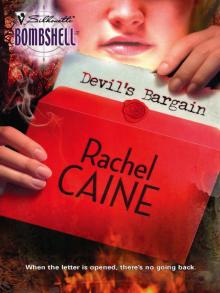 Devil s Bargain
Devil s Bargain Prince of Shadows: A Novel of Romeo and Juliet
Prince of Shadows: A Novel of Romeo and Juliet Bite Club mv-10
Bite Club mv-10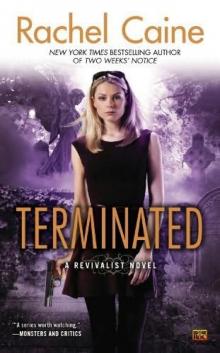 Terminated tr-3
Terminated tr-3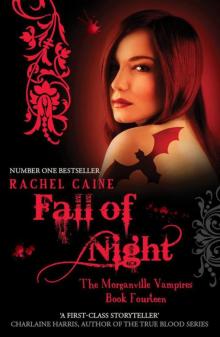 The Morganville Vampires 14 - Fall of Night
The Morganville Vampires 14 - Fall of Night Bitter Blood tmv-13
Bitter Blood tmv-13 Falling for Grace
Falling for Grace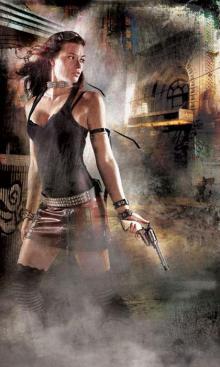 The True Blood of Martyrs
The True Blood of Martyrs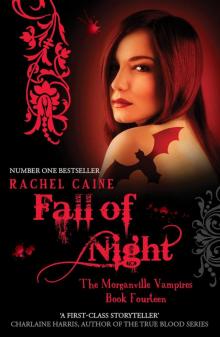 Fall of Night (The Morganville Vampires)
Fall of Night (The Morganville Vampires)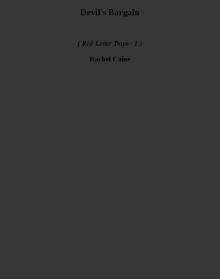 Devil's Bargain rld-1
Devil's Bargain rld-1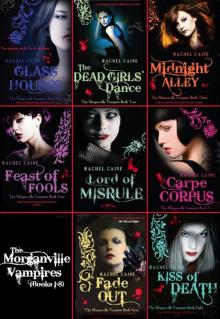 The Morganville Vampires (Books 1-8)
The Morganville Vampires (Books 1-8)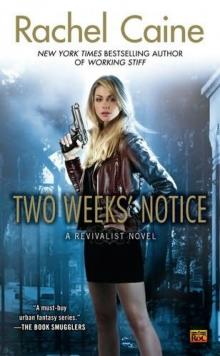 Two Weeks' Notice tr-2
Two Weeks' Notice tr-2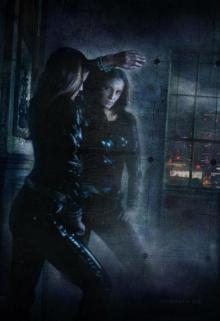 An Affinity for Blue
An Affinity for Blue Caine, Rachel-Short Stories
Caine, Rachel-Short Stories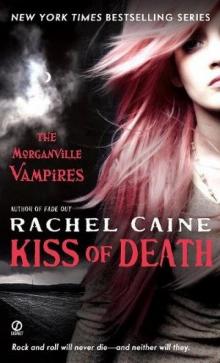 Kiss of Death tmv-8
Kiss of Death tmv-8 WITCHGRAVE
WITCHGRAVE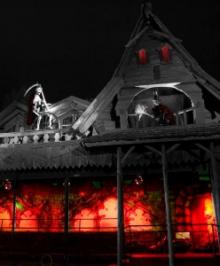 Dark Rides
Dark Rides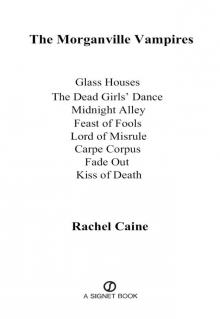 The Morganville Vampires
The Morganville Vampires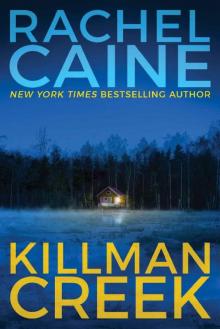 Killman Creek (Stillhouse Lake Series Book 2)
Killman Creek (Stillhouse Lake Series Book 2) Midnight Bites
Midnight Bites Line of Sight
Line of Sight![Morganville Vampires [01] Glass Houses Read online](http://i1.bookreadfree.com/i1/03/30/morganville_vampires_01_glass_houses_preview.jpg) Morganville Vampires [01] Glass Houses
Morganville Vampires [01] Glass Houses Black Dawn tmv-12
Black Dawn tmv-12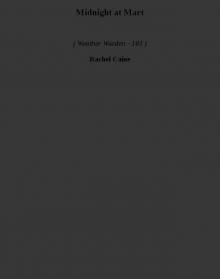 Midnight at Mart ww-103
Midnight at Mart ww-103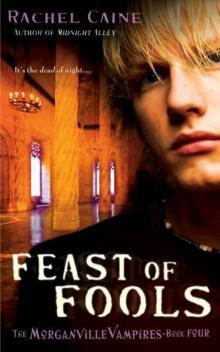 Feast of Fools tmv-4
Feast of Fools tmv-4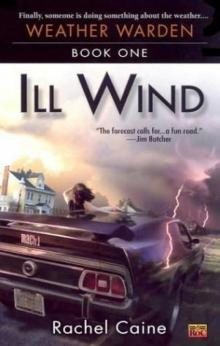 Ill Wind tww-1
Ill Wind tww-1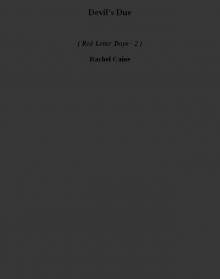 Devil's Due rld-2
Devil's Due rld-2 Black Dawn: The Morganville Vampires
Black Dawn: The Morganville Vampires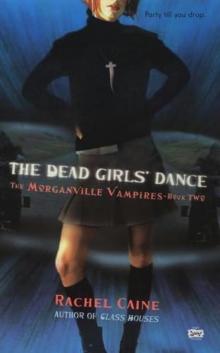 Dead Girls' Dance tmv-2
Dead Girls' Dance tmv-2 Minute Maids
Minute Maids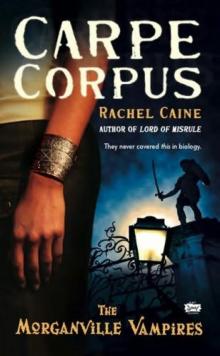 Carpe Corpus tmv-6
Carpe Corpus tmv-6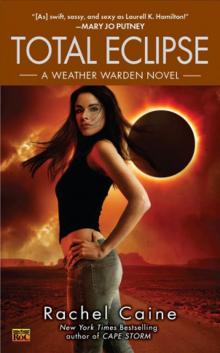 Total Eclipse tww-9
Total Eclipse tww-9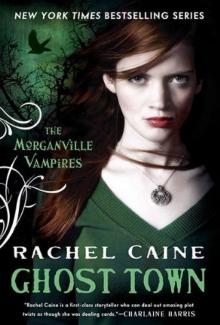 Ghost Town mv-9
Ghost Town mv-9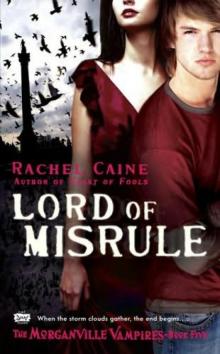 Lord of Misrule tmv-5
Lord of Misrule tmv-5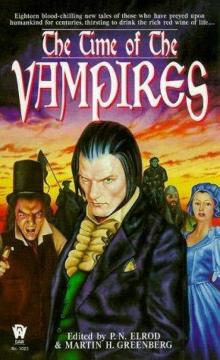 Faith Like Wine
Faith Like Wine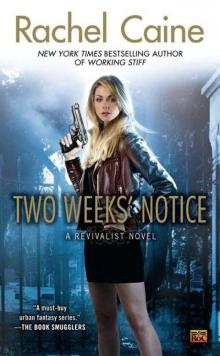 Two Weeks' Notice: A Revivalist Novel
Two Weeks' Notice: A Revivalist Novel Daylighters tmv-15
Daylighters tmv-15 Stamps, Vamps & Tramps (A Three Little Words Anthology)
Stamps, Vamps & Tramps (A Three Little Words Anthology)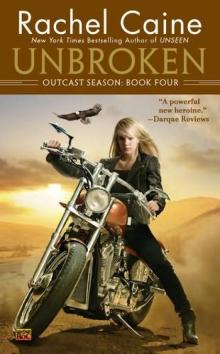 Unbroken os-4
Unbroken os-4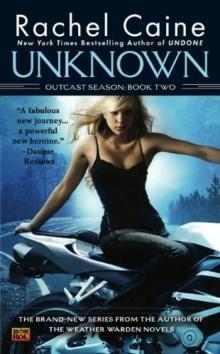 Unknown os-2
Unknown os-2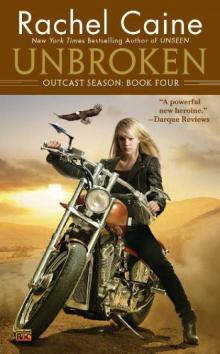 4 - Unbroken
4 - Unbroken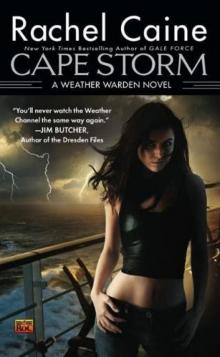 Cape Storm tww-8
Cape Storm tww-8 Last Breath tmv-11
Last Breath tmv-11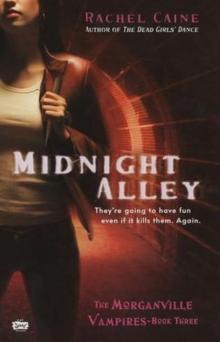 Midnight Alley tmv-3
Midnight Alley tmv-3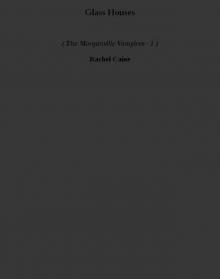 Glass Houses tmv-1
Glass Houses tmv-1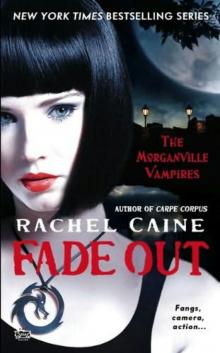 Fade Out tmv-7
Fade Out tmv-7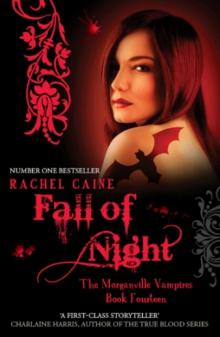 Fall of Night tmv-14
Fall of Night tmv-14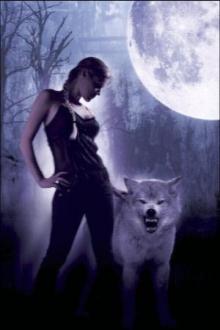 Godfellas
Godfellas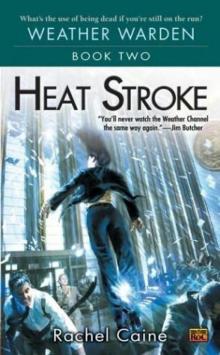 Heat Stroke ww-2
Heat Stroke ww-2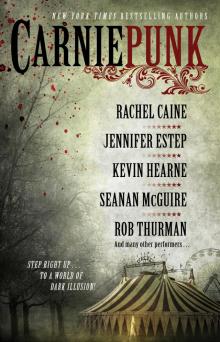 Carniepunk
Carniepunk Oasis ww-102
Oasis ww-102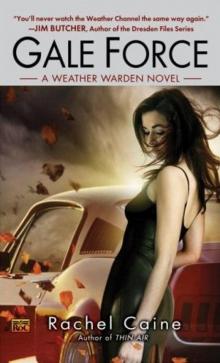 Gale Force tww-7
Gale Force tww-7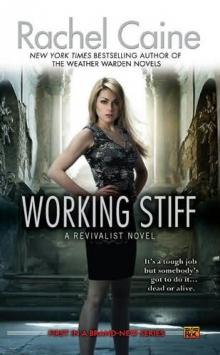 Working Stiff tr-1
Working Stiff tr-1